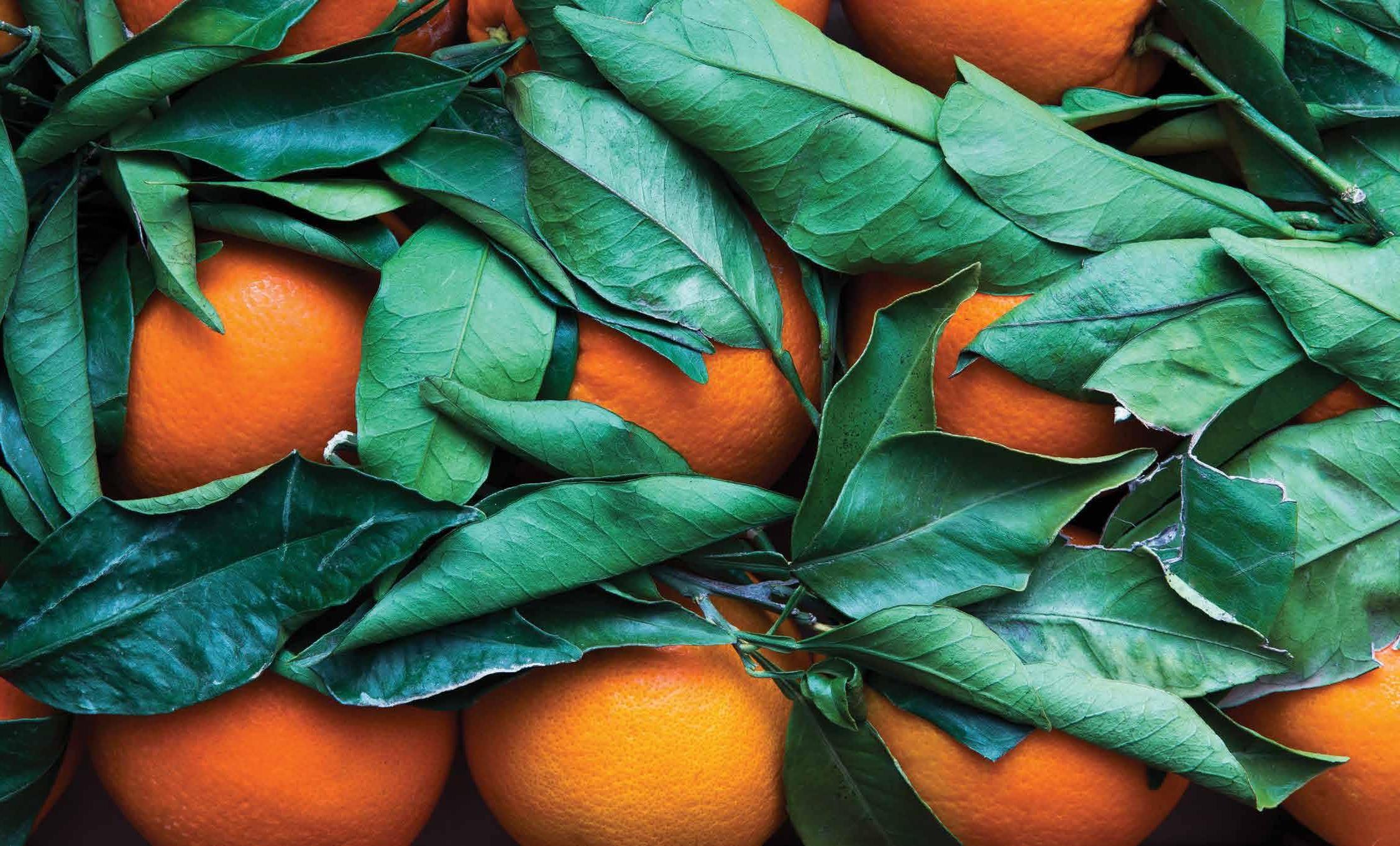
9 minute read
Sustainability
Mushrooming popularity
Polystyrene is having a calamitous effect on the environment. Made from petroleum, it is non-sustainable, non-renewable and not biodegradable. It can also be deadly when ingested by wildlife.
Advertisement
As part of its eco-efforts, Ikea has committed to using packaging made from fungi. Mycelium is the fungi’s root structure which can bind with other organic materials, such as wood chips or agricultural waste like corn husks to form solid shapes. Consumers can toss the packaging onto their garden compost heap where it will break down within weeks.
Joanna Yarrow, head of sustainability for IKEA in the UK, says that “the great thing about mycelium is you can grow it into a mould that then fits exactly. You can create bespoke packaging.”
This form of mushroom packaging has been pioneered by Ecovative in New York.
Turning “the green menace” into plastic cups, plates and cutlery

Cutting food waste could help tackle climate change
Finding smart ways to reduce food waste
Canada’s Department of Fisheries and Oceans describes the European green crab as “one of the 10 most unwanted species on the planet”. This invasive and resilient crustacean can wreak havoc on coastal environments, and females can release up to 185,000 eggs once or twice a year. They are voracious predators, devouring oysters, mussels, clams and juvenile crabs. The situation at one national park in Nova Scotia has become critical, and eradication is required to protect the delicate native eco-system.
not only makes good financial sense, it could
also help to tackle climate change. The UN’s Food and Agriculture Organization estimates that if food waste was a country it would be
the third highest emitter of greenhouse gases after China and the USA.
Growing, processing, packaging and trans

porting food all contributes to CO 2 emissions. And then after it has been thrown away, the
food rots and releases more greenhouse gases into the atmosphere.
The average Kiwi family throws away three shopping trolleys of edible food every year.
Love Food Hate Waste NZ’s website is chockfull of practical ideas about how to reduce food waste, including how to shop seasonally, and recipes for leftovers like broccoli stems and citrus peels.
There is also a quiz to show in real terms how much money you could be wasting if food gets thrown in the bin.
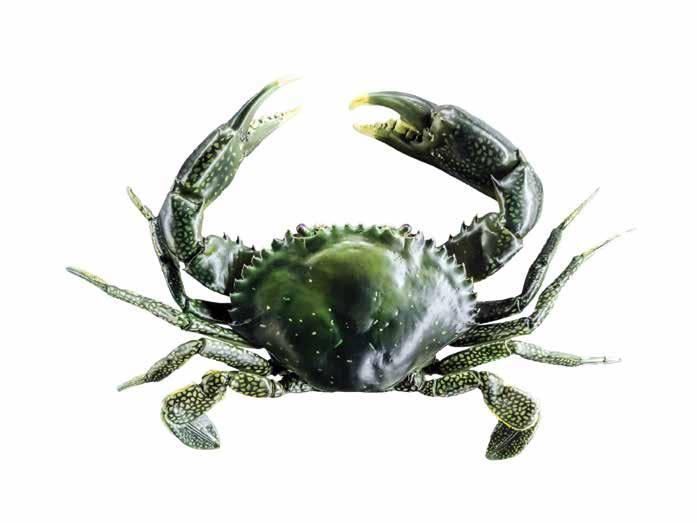
Thanks to a chemist at McGill University in Montreal, this has become an opportunity to create an eco-friendly, biodegradable plastic – using the crabs’ shells. Parks Canada developed a precise technique to trap the crabs, allowing Associate Professor Audrey Moores and her team of scientists to harvest the crabs with the least disruption to the surrounding ecosystem.
The shells are then crushed and mixed with a special powder to extract a chemical called chitin. Previously, this has been extracted from shellfish and crab shells by using hydrochloric acid, and then adding other chemicals. Although the resulting plastic was biodegradable, chemically tinted wastewater was a by-product. Professor Moores’ new method is far less toxic.
“What we’re trying to think about is can we take this as a resource to make some material that a fishery can actually sell and value,” she says. “This project will not only develop a marine biodegradable plastic, but it will also enhance the recovery of deteriorated coastal ecosystems and provide a new industry to sustain coastal fishing communities.”
EV luxury made of recycled bottles and reclaimed fishing nets


Polestar has unveiled its aspirational Precept concept. The high-performance, technology-focused vehicle design company, which is partowned by Volvo, said that this car “previews future vehicles and shows how we will apply innovation to minimise our environmental impact.”
The Precept’s interior has been designed to “balance modern high-tech luxury with reduced environmental impact”. Bcomp’s flax-based composites for interior panels and seatbacks offer significant improvements over conventional materials, including an up to 50 per cent saving in weight and an up to 80 per cent reduction of plastic waste.
Seat surfaces are 3D-knitted from recycled PET bottles; bolsters and headrests are made from recycled cork vinyl; carpets are made from reclaimed fishing nets.
The Precept was due to be officially presented at the Geneva International Motor Show in March.
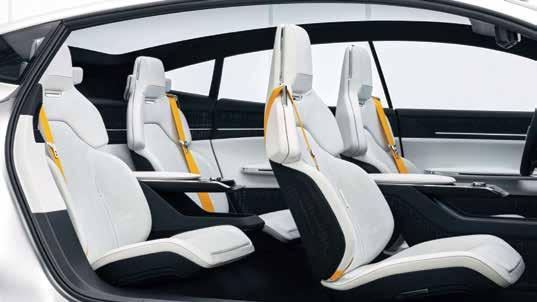


Earlier this year, three CityTrees with “the cleaning power of a small forest” were installed to help clean up the UK capital’s polluted air.
Two of the CityTrees are in Leytonstone in the borough of Waltham Forest where a climate emergency was declared in April 2019. “Waltham Forest Council has been tackling climate change for over a decade,” said Councillor Clyde Loakes. “The CityTrees are cutting-edge technology with biotech filters, using living plants and different types of mosses to capture toxins and remove pollutants from the surrounding environment to produce clean air. It’s the equivalent of planting 275 trees.”
Every CityTree has its own water tank, solar panels, batteries and built-in sensors so that they can operate in all weathers. The mosses can also store large amounts of water meaning that the surrounding air is kept cooler, which may be a welcome benefit for pedestrians in the summer heat.
Harnessing the power of nature to absorb London’s pollution
For now, it can be viewed online at polestar.com.

Are we on the cusp of a solar power efficiency breakthrough?
Solar is the world’s fastest growing energy technology. In 2010, there were only 20 gigawatts of installed solar capacity in the world. By the end of 2019, this had increased to about 600 gigawatts. UK-based research company HIS Markit forecasts that, even with COVID-19 disruption, a further 105 gigawatts will be added this year.
On average, a commercial solar panel converts 17 to 19 per cent of the light energy that hits it into electricity, up from 12 per cent a decade ago. However, it is hoped that, combining six different materials – instead of only thin slices of silicon crystals – into a “multi-junction cell” could increase efficiency to as much as 47 per cent.
There is also a developing solar technology called “perovskites” (named for a 19th century Russian mineralogist, Count Lev Alekseevich von Perovski). Their crystal structure works well at solar absorption even at lower lighting levels. Furthermore, only ultra-thin strips are required – just 300 nanometres (or 0.00003 cm) – so it can be easily applied as a coating to buildings, vehicles, phones or even clothing.
A Swiss start-up, Insolight, is taking a different approach, and embedding a grid of hexagonal lenses into a solar panel’s protective glass. The patented optical system concentrates light onto an array of tiny spacegrade multi-junction photovoltaic cells, and the pre-production module efficiency has been validated at 29 per cent. Furthermore, the cell array shifts a few millimetres horizontally during the day to track the sun.
“The architecture of these conventional concentrated photovoltaics is very costly. What we’ve done is miniaturise the sun tracking mechanism and integrate it within the module,” says Insolight’s chief business
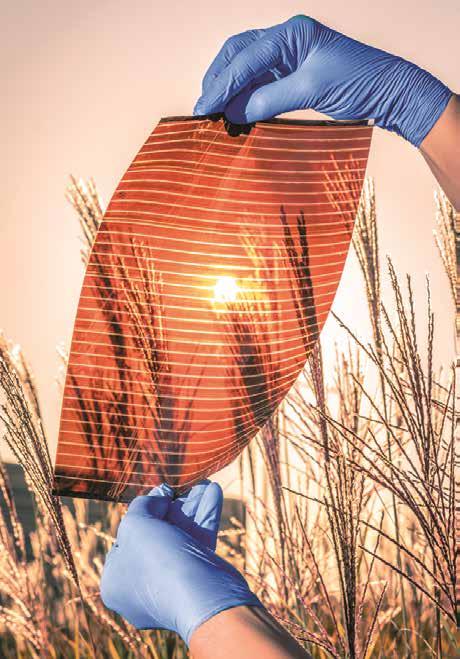
officer David Schuppisser. “We’ve done it in a cheaper way [that] you can deploy anywhere you can deploy a conventional solar panel,” he says. The company is now working on a module that is hoped to reach 32 per cent efficiency.
Packaging up sustainable fun and innovation Because cats can’t resist a box…

Some household items arrive in large amounts of cardboard and Samsung has come up with a nifty recycling idea. The packaging for its Lifestyle TVs can now be repurposed to make magazine racks,
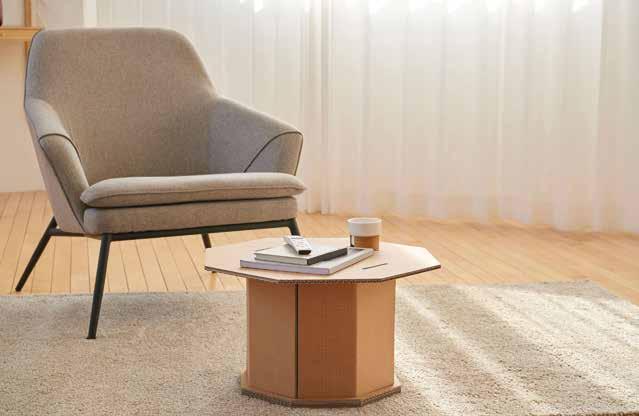
DVD bins, or cat houses. One side of the corrugated cardboard has a dot-matrix guide to help with cutting, folding and assembly. This is part of Samsung’s larger initiative to reduce its environmental footprint.
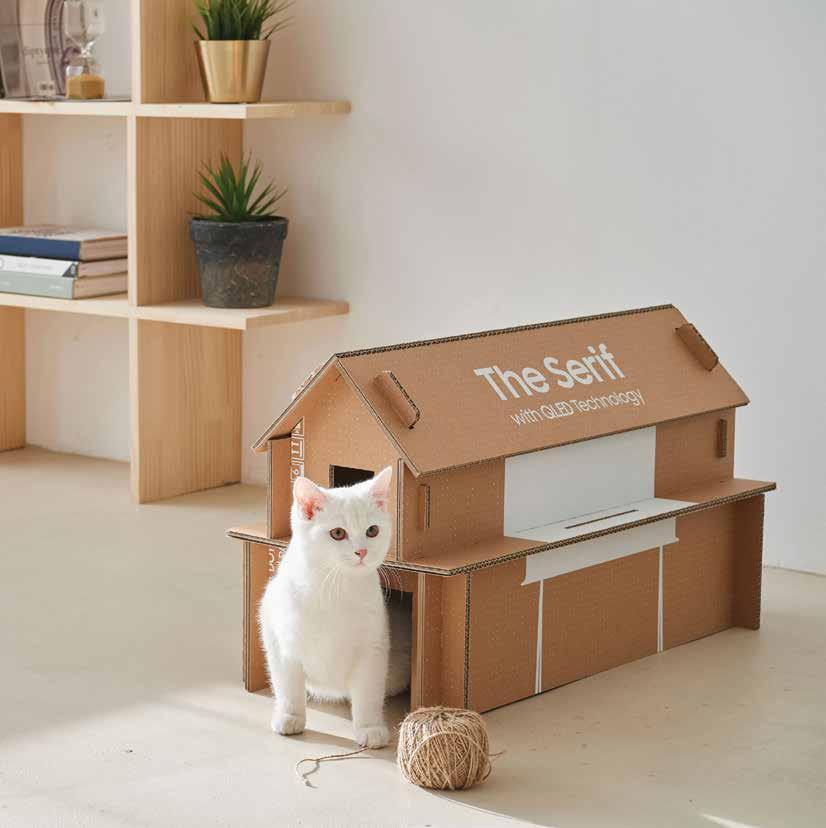
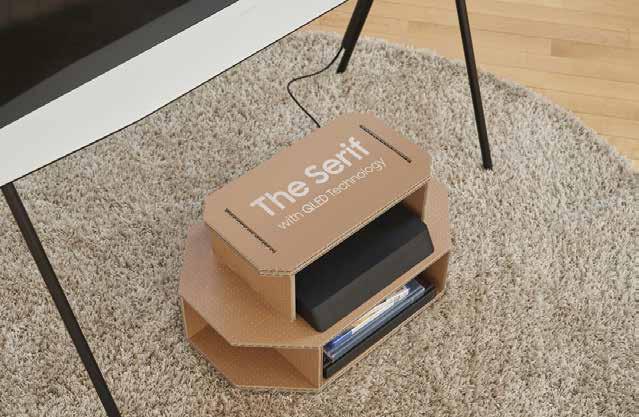
Business North Harbour inorganics update

Unfortunately, the collections
scheduled for 26th and 27th March could not be completed, due to the shutdown which came into effect on Wednesday 25th. Abilities Group, BNH’s collection partner, acted quickly when Alert Level 4 was announced and e-mailed all the registered member companies on Tuesday 24th. The good news is that these collections can now go ahead in Alert Level 2.
Looking ahead, BNH plans to hold its second inorganics collection on 24th and 25th September. More details will follow nearer the time.
Advice and support from Sustainable Business Network
In her blog post Help grow a new regenerative economy, SBN’s CEO Rachel Brown observes of COVID-19 that:
“New Zealand is faring well compared to many other nations, but the global impact is, and will continue to be, devastating. For very real reasons we have watched attention on climate, water and waste drop away. There is a danger of returning to the old habits of the ‘business as usual’ economy that was failing us before.
Environmental and social issues are still pressing for us all.
The financial impact is going to be deep, long and slow. The impact of job losses and reduction of wages is very real, as so much of our business community is simply not able to operate. The tourism and hospitality sectors have taken the biggest initial hit, but other parts of the economy are suffering too.
The negative social and economic impacts of ‘business as usual’ haven’t gone away. They were unsustainable then. They still are. So, as we work our way through the Covid upheaval with short-term tactics we need to keep our eye on the long game.”
Right now, all of SBN’s resources are available for free download. These include insights on:
Smart office Zero waste Energy Transport Procurement
A summary of these top tips is available as one PDF: Sustainable Business During the Recovery.
There is also a series of capability training workshops. Thus far, these have covered a wide range of topics such as behaviour change, packaging sustainability, and how to use your smartphone to create professional-looking video presentations.
For more information about these resources and events, visit sustainable.org.nz/ sustainable-business-and-covid-19
SERVICE STILL OPERATING AT ALL COVID-19 LEVELS REDUCE LANDFILL & HELP
SAVE THE PLANET SIGN UP TO OUR FOOD WASTE SERVICE TODAY

